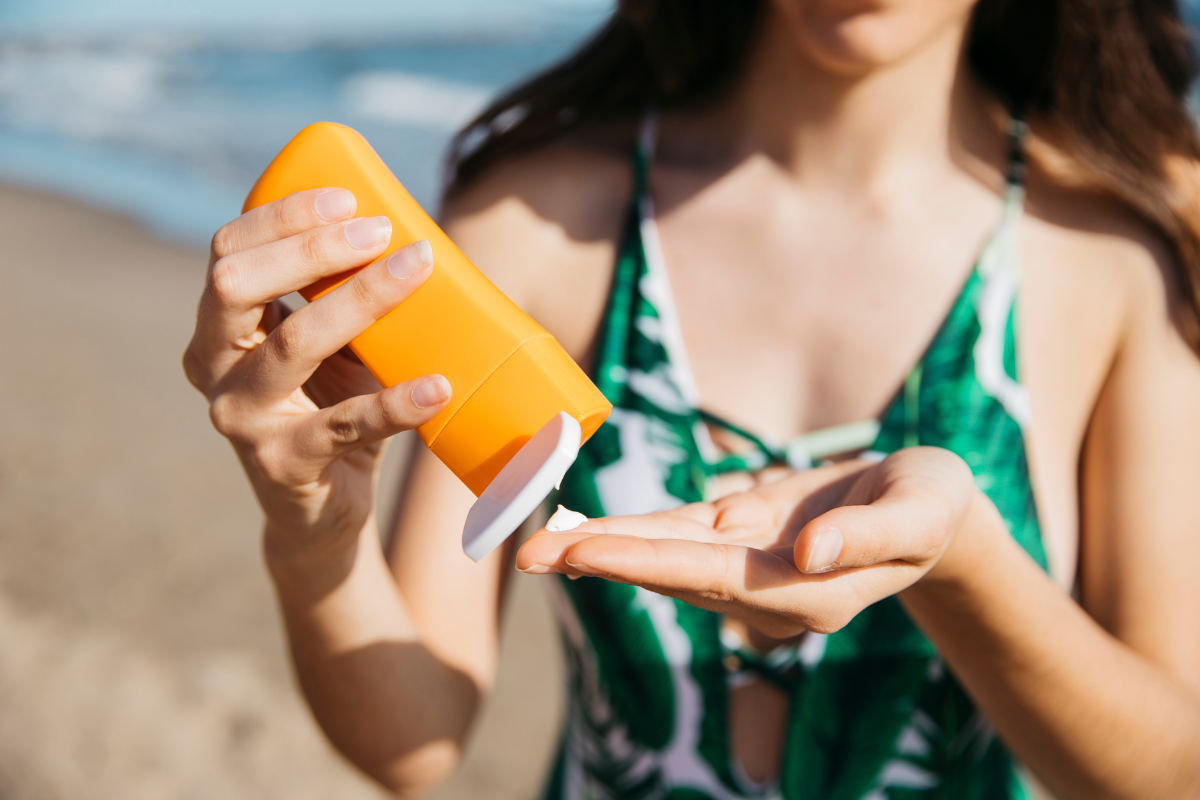When you expose your skin to the UV rays of the sun for too long, it leads to sunburn. However, a lot of people don’t realize that even if you’re not planning a trip to the beach, using an SPF sunscreen still remains important. As you go about your daily routine, UV rays can still cause damage to your skin, but the big question that a lot of people have is what SPF sunscreen should I use? This post explores what SPF means and gives you some guidance to help protect your skin, as recommended by dermatologists.
What Does SPF Mean in Sunscreen?
Before you start looking for sunscreen, it’s important to understand the meaning of SPF. The term SPF is short for Sun Protection Factor. It basically gives you an idea of how well a specific sunscreen can protect you against the UV rays that the sun emits.
So, if you ever ask what does SPF stand for, it’s a standard term that you’ll see in most of the sunscreens on the market, as it helps people realize which one to choose based on the level of protection they need.
Does SPF Actually Matter?
Once you know the answer to what does SPF mean in sunscreen, you might wonder if it really matters. In short, yes. If you choose a random sunscreen without taking a closer look at the SPF, you might not get the protection you need while you’re outside. This can increase your likelihood of experiencing sunburn and damage your skin. The higher the SPF, the greater the level of protection this kind of product can give you.

What SPF Should I Use for My Sunscreen
When asking what SPF should I use, there are different things that you’ll need to keep in mind. For example, you’ll need to consider how long you will be out in the sun, as well as the UV index for the day. However, it’s generally a good idea to opt for sunscreen with a minimum SPF of 30.
However, this isn’t the only thing to consider. When it comes to protection against UVB rays, the SPF should be 30 or higher. When looking at these products, you also have to make sure they provide protection against UVA rays. Even the highest SPF sunscreen can still result in sunburn if it’s not a broad-spectrum one.

What Would Be the Best Skincare Routine Before and after Applying Sunscreen
It’s a good idea to make your sunscreen part of your skincare routine. This helps to ensure you don’t forget to apply it. It’s generally going to be a part of your morning routine.
Start by applying a good moisturizer to your skin. This will help keep your skin hydrated and moistured. Follow the moisturizer with your sunscreen, and then afterward, you can apply your makeup.
What Type of Sunscreen is Best?
Apart from knowing the difference between SPF 30 and 50, as well as other protection options, there are a couple of elements to keep in mind when choosing the best sunscreen product:
Whether you’re looking at the best sunscreen for face or other parts of your body, keep these factors in mind:
Does a Sunscreen with a High SPF Protect Skin Better Than a Lower SPF?
It depends on the specific SPF that you’re looking at. For example, the difference between SPF 30 and 50 sunscreens is very narrow.
At SPF 30, these products can block 97% of UVB rays. An SPF 50 sunscreen blocks 98%, whereas an SPF 100 sunscreen blocks 98%. The biggest jump can be seen between SPF 15 and 30, which goes from 93% to 97%.
How Much Sunscreen Should I Use?
You don’t need a lot of sunscreen to protect your skin against UV rays. It’s generally recommended to use about an equivalent of two tablespoons on the areas of your skin that are exposed.
How Often Should I Apply Sunscreen?
It’s a good idea to apply sunscreen every two hours. This is a general recommendation that applies to most people, although there are some of these products that can offer longer protection. It’s very important to make sure you apply sunscreen at this frequency if you’re swimming or performing activities that make you sweat, such as running outside.
Does SPF Only Last 2 Hours?
Yes, most sunscreen products can offer protection for your skin over a two-hour period. However, according to experts at the American Academy of Dermatology, you should also reapply sunscreen after you get out of the water, if you decide to swim.
Is SPF 50 Too Much or Too Little for Your Skin?
How long you will be outside and the intensity of the UV rays will play a role here. Most people will be able to benefit from SPF 50. However, there are experts who believe an SPF 30 sunscreen is the best choice. It offers a similar level of protection (blocking 97% of UVB rays) and is a more affordable choice compared to a sunscreen-rated SPF 50.
When it comes to protecting your skin against UV exposure, it’s also important to focus on things like hydration and general well-being. SilkiMED has created a wide range of products that boost hydration, contribute to your skin’s moisturization, and help to repair damage. The company focuses on creating formulas that are transparent, making sure you know exactly when you put on your skin.


